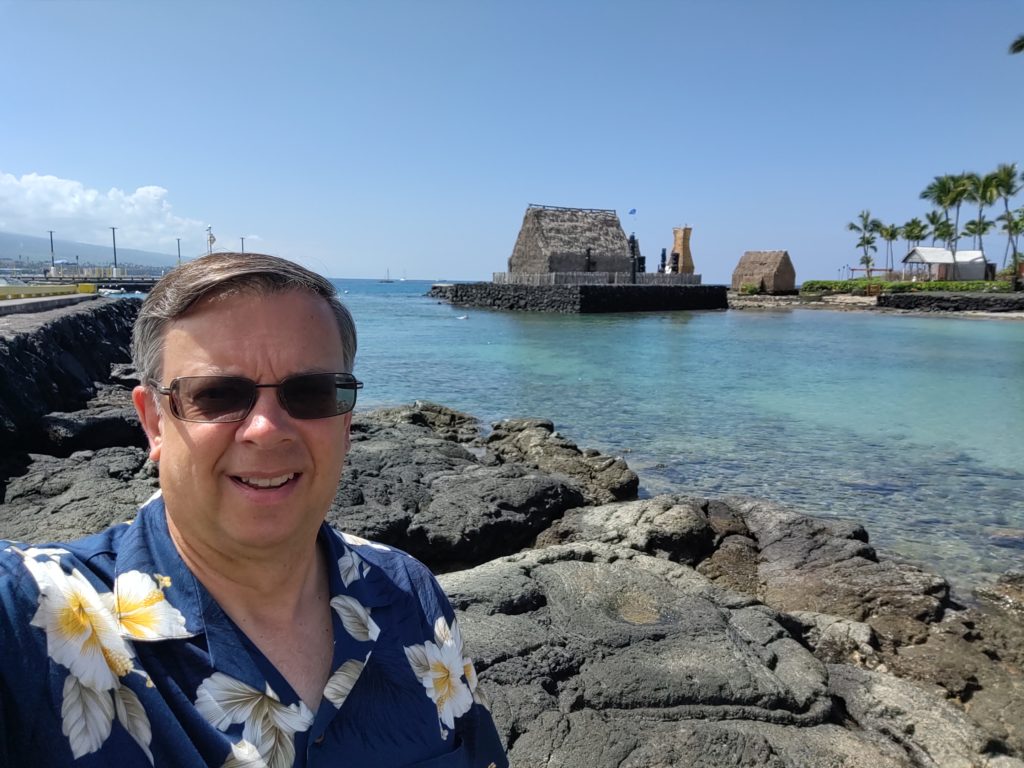One of the benefits of traveling is learning about other cultures. While Nancy and I were in Hawaii earlier this year, we learned a good bit of its history that has helped make the Hawaiians who they are today.
Prior to Captain Cook’s arrival in 1778, the Hawaiians had no interaction with the outside world. It is believed that the first islanders arrived in the fifth century AD but that these were overtaken by a second group from Polynesia who landed about 600 years later.
As they grew in number, these people scattered throughout the islands and various tribes fought against one another until King Kamehameha united all the islands in 1810.
The native Hawaiians also had their own religion that had developed over many years. It was a rigid system of strict rules and punishments (usually death by strangulation, club, or fire) for even slight violations such as allowing your shadow to cross that of a chief. Even eating with your spouse was forbidden as men and women were to always dine separately.
They also practiced human sacrifice including throwing young virgins into the hot molten lava to placate the goddess Pele. Heaven only knows how many people were cruelly slaughtered over the years to appease the various deities.
Incredibly, the Hawaiians abandoned their native religion just months prior to the arrival of the first missionaries in 1820. Such timing seems too providential to be coincidental. For when the bearers of the Gospel stepped on the shore in the exact spot where the native high priest had prophesied a new god would land, the islanders welcomed them, and Christianity spread throughout the islands.
This lava outcrop on the Big Island in Kona where the missionaries landed is now known as Hawaii’s Plymouth Rock. Thankfully those evangelists refused any worship or personal glory but rather pointed the natives to the one true God.
These missionaries also began educating the islanders and within 25 years the literacy rate there was one of the highest in the world. More importantly, the locals experienced the spiritual freedom of being released from their idolatrous chains and were introduced to the grace, mercy, and peace of Jesus Christ.
It was perhaps their inborn sense of morality that enabled them to see the shortcomings of their native beliefs and embrace Jesus’ teachings. All humans have an innate knowledge of right and wrong that causes each of us to hunger for the one true God. If such a god did exist, the Pacific Islanders knew He had to be different from their cruel and demanding traditions.
Although they had earlier thought Captain Cook and his crew were gods, they realized this was not the case when one of them died and others accepted their women. How did they know this was amiss? Thankfully, Cook rejected any such veneration, but in addition, their inborn moral compass tipped them off.
Even with a skewed understanding, these islanders knew a Supreme Being existed and they sought to please Him. The incredible beauty and volcanic realities of their islands undeniably demanded a great Creator and Sustainer. Thankfully they welcomed Him when He arrived with the missionaries.
People today wonder about their own lives and existence. Is there a god and if so, what is He like? We all have an innate longing to connect with this almighty Being and we even sense that He should be just, loving, and honorable.
If you are searching for this God, know that He is searching for you and that He loves you with all His heart. Reach out to Him in prayer, seek Him in His holy Word, and worship Him with other believers in a Christ centered Bible believing church.
In addition, you are invited to Antioch Church on October 8 from 9:30am-4:00pm as singer, songwriter, speaker, and author Alisa Childers shares her own journey of doubt and faith with solid reasons to trust in the same God the Hawaiians received from the missionaries.
Blessings, George
